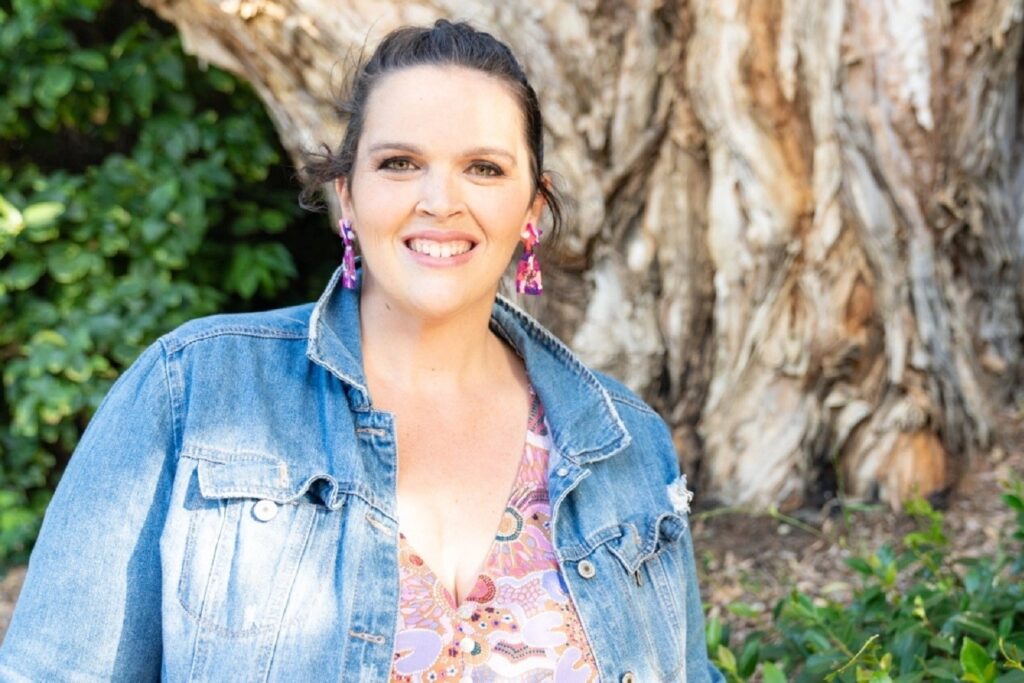Jessica Staines is an early childhood teacher, speaker, author, advocate, educator and advisor. She is also the founder and director of Koori Curriculum and a proud Wiradjuri Woman.
I wish I could say that Stan Grant’s decision last week to take a break from public life and his high-profile role at the ABC came as a surprise to me.
But the truth is, as an Indigenous business owner, I’m regularly targeted by trolls and racists who leave disgusting comments on my online platforms. And sadly, this kind of trolling increases around any kind of public spotlight — whether it’s Reconciliation Week, Australia Day, or any other significant date on the calendar or moment in the media.
This week it’s Reconciliation Week, and last week we had National Sorry Day, so of course the comments have come in thick and fast. Whether it’s someone telling us to ‘get over it’, or trolling ripe with racial abuse that Facebook insists is not in breach of its community guidelines.
This kind of insufficient support from social media platforms in creating safe spaces for our communities led to the First Peoples Assembly in Victoria starting a petition over the weekend, because online abuse is common for Indigenous business owners, but most people don’t see it or even necessarily believe it.
Hidden in plain sight
One reason the reality of racist abuse aimed at Indigenous business founders is hard to believe is that we’re often hiding it.
Not because we want to protect the racists or trolls who spout abuse, but because we want to protect our communities from having to see it. My business, Koori Curriculum, has thousands of followers on our social media platforms, and I don’t want them to be triggered or traumatised by racist abuse aimed at me and my business. I have a responsibility to my followers to keep them safe.
I know many other Indigenous business owners are in a similar boat.
And these key dates in the calendar — Reconciliation Week, NAIDOC Week, even the 26th of January — lead to peaks in the abuse, meaning we need to be especially vigilant. But it’s time we were honest about the reality of this racism.
We can do better
When it comes to business, National Reconciliation Week is a good reminder of how we can all do better in being advocates and allies to First Nations people. Not just this week, but every day.
Businesses are uniquely positioned to be part of a change for the better. This year’s theme, Be a Voice for Generations, is about helping build a future we can all be proud of. A country that is reconciled, more equal, and more fair.
First up, does your business have a Reconciliation Action Plan?
If not, now is the time to put one in place.
Reconciliation Action Plans enable organisations to take strategic and sustainable action towards advancing reconciliation. They’re based on the core pillars of relationships, respect and opportunity — but at this point, only around 1,100 Australian organisations have a Reconciliation Action Plan in place.
These plans provide tangible and substantive benefits for Aboriginal and Torres Strait Islander peoples, increasing economic equity and supporting First Nations’ self-determination.
Embedding support every day
As someone in business, you have a sphere of influence and you have a platform. You can use this platform to amplify the voices of First Nations people and businesses.
In the day-to-day of business, you can show ongoing support — everything from the way you recruit new employees to the way you procure service providers can have an impact on the reconciliation process and provide more opportunities for First Nations people.
Make an effort to find out about your local communities and organisations. Perhaps you could provide support as a mentor, or get involved in local projects and events. Look for ways to build relationships and long-term support, so that this kind of mindful advocacy is embedded in the daily operations of your business.
Ask questions and take an interest. If you’re looking to make charitable donations, there are some amazing non-profits out there, such as Children’s Ground, which are making big steps towards a more positive future.
A cultural shift
I started my business in 2015, and at the time cultural awareness was sporadic at best. Perhaps once or twice a year, organisations would support an event such as NAIDOC Week, but the rest of the year it was non-existent.
The good news is, I’ve seen a cultural shift over the past eight years. Today, embedding cultural awareness into the everyday is much more common and accepted. We can all be part of the change for good, and in building a future we can all be proud of, for our children, and for future generations.
What will your business do to make a difference?
This is an edited version of a piece that was first published on SmartCompany. Read the original story here.


